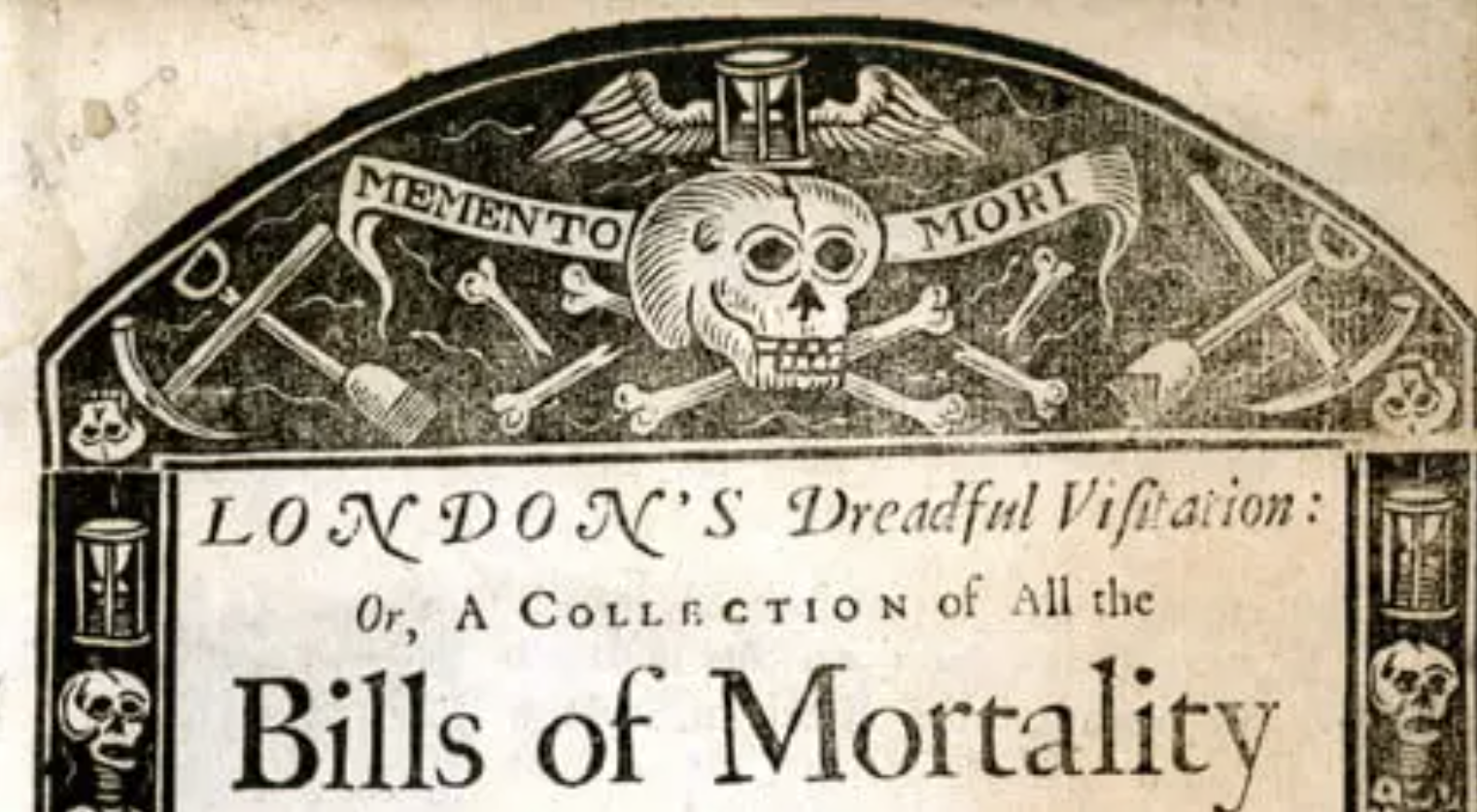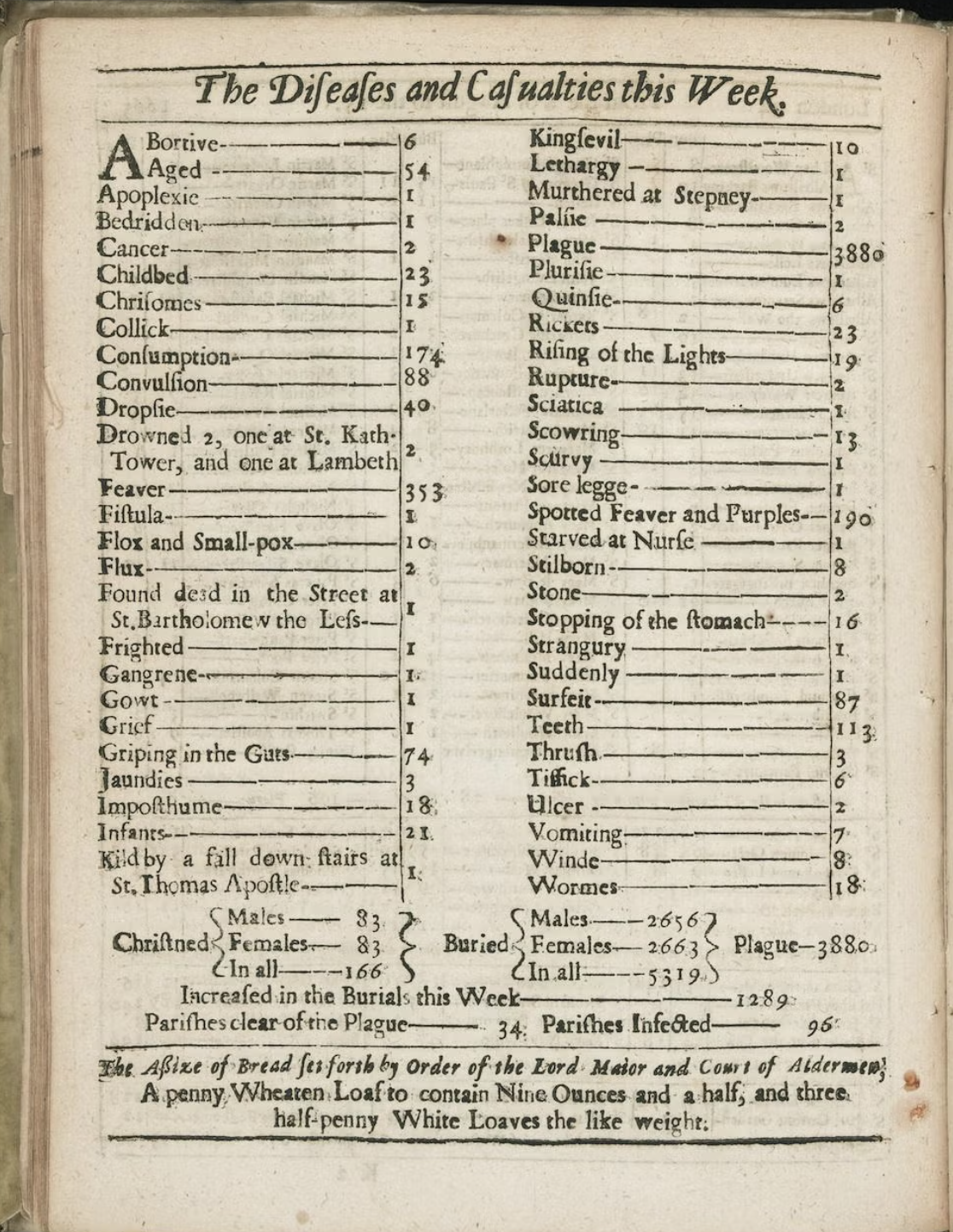
A common historical misconception holds that, up until a few centuries ago, everyone died when they were about 40. In fact, even in antiquity, one could well make it to what would be considered an advanced age today — assuming one survived the great mortal peril of childhood, and then all the dangers that could befall one in all the stages of life thereafter. In the mid-seventeenth century, with the Dark Ages past and the Industrial Revolution just ahead, these threats to life included consumption, dropsy, “griping in the guts,” sciatica, “stopping of the stomach,” and of course, plague.
This information comes from the London “mortality bill” seen below, which “represents the death tally of all city parishes for the week of Aug. 15–22, 1665, when the plague had infected 96 of the 130 parishes reporting.”
So writes Rebecca Onion at Slate, who cites Shakespeare’s Restless World author Neil MacGregor as saying that “the bills cost about a penny, and were published in large print runs.” But “if medicine was still somewhat uncertain about the causes of death, those in charge of toting up deaths for the bills of mortality were even more so,” resulting in vague categorizations like “bedridden,” “frightened,” “lethargy,” and “surfeit.”

You may receive one of those fates when you spin the wheel of 17th-Century Death Roulette, a web application that cycles rapidly through mortality bills and the types of death listed therein. “In the week of July 11th, 1665 you died from Palsie.” “In the week of February 14th, 1665 you died from Kild accidentally with a Carbine, at St. Michael Wood Street.” “In the week of December 12th, 1665 you died from Winde.” Your results may not reflect the actuarial probability of what might have killed a given Londoner in that year, but all this death does, perhaps ironically, give a vivid impression of life at the time. Personally, I’m curious how dangerous those stairs at St Thomas the Apostle really were, but given that the whole church burned down in the Great Fire of the very next year, I suppose we’ll never know. Play the 17th-Century Death Roulette here.
via Metafilter
Related content:
The History of the Plague: Every Major Epidemic in an Animated Map
A 1665 Advertisement Promises a “Famous and Effectual” Cure for the Great Plague
Isaac Newton Conceived of His Most Groundbreaking Ideas During the Great Plague of 1665
Based in Seoul, Colin Marshall writes and broadcasts on cities, language, and culture. His projects include the Substack newsletter Books on Cities and the book The Stateless City: a Walk through 21st-Century Los Angeles. Follow him on Twitter at @colinmarshall or on Facebook.


En qué año reencarne
Soy mujer y color piel
En qué año rencarne
Hola